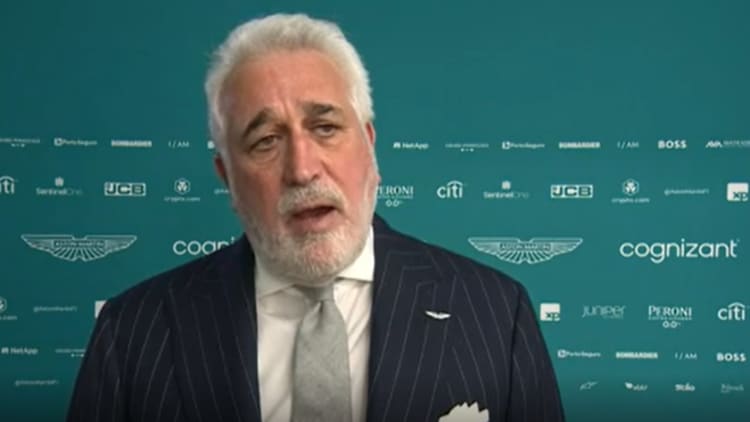[ad_1]
The exterior of an Aston Martin store.
Jeremy Moeller | Getty Images News | Getty Images
LONDON — British luxury carmaker Aston Martin Lagonda forecasts better profitability this year, after widening its 2022 pretax losses on the back of a weakening U.K. currency.
The company more than doubled year-on-year pretax losses to £495 million ($598 million) in 2022, from £213.8 million in 2021, saying earnings were “materially impacted” by a revaluation of some U.S. dollar-denominated debt, “as the GBP [U.K. currency] weakened significantly against the US dollar during the year.”
Adjusted operating losses also swelled to £118 million last year, from £74 million in 2021. Revenues rose by 26% on the year to £1.38 billion, with gross profit up by 31% year-on-year to £450.7 million.
Despite acknowledging supply chain and logistics disruptions — which have been pervasive in the automotive industry, notably as a result of semiconductor shortages — the company said its wholesale volumes increased by by 4% year-on-year to 6,412. The figure included more than 3,200 of vehicles from the Aston Martin DBX range, of which more than half were driven by the launch of the DX707 SUV model unveiled in February last year.
Aston Martin Lagona shares soared, up 14% at 10 a.m. London time, after Aston Martin Lagonda issued more optimistic guidance for this year.
“For 2023 we expect to deliver significant growth in profitability compared to 2022, primarily driven by an increase in volumes and higher gross margin in both Core and Special vehicles,” it said Wednesday, flagging a pick-up in activity in the second half of 2023.
“In addition to the ramp up of the already sold-out DBS 770 Ultimate, we expect deliveries of the first of our next generation of sports cars to commence in Q3.”
The company expects wholesale sale volumes to pick up to 7,000 units in 2023, anticipating its adjusted earnings before interest, taxes, depreciation and amortization to add roughly 20%.
It noted the ongoing pressures of a volatile operating environment, high inflation rates and “pockets of supply chain disruptions.”
“Our order book’s never been stronger,” Aston Martin Lagonda Executive Chairman Lawrence Stroll told CNBC last month. “The future is fantastic, the cars are coming, fundamentals of the business are extremely strong. And demand has never been stronger.”

Stroll on Wednesday reiterated the company’s target to deliver 10,000 wholesale units over the coming years, as well as the target to become “sustainably free cash flow positive from 2024,” after raising £654 million of equity capital in a move that also saw Saudi Arabia’s Public Investment Fund become an anchor shareholder.
“Over the last three years, I have consistently referenced our target to deliver around £2bn of revenue and £500m of adjusted EBITDA by 2024/25,” Stroll said. “I am extremely proud that given the strong progress we have made to transform Aston Martin into a truly ultra-luxury business, demonstrated by the trajectory of our ASP and gross margin, we are on track to meet these financial targets, but with significantly lower volumes than I originally envisaged.”
“2022 in line with consensus is already positive news for AML,” Jeffrey analysts said in a Wednesday note, flagging the upside of the company’s guidance on units and EBITDA margin.
[ad_2]
Source link
